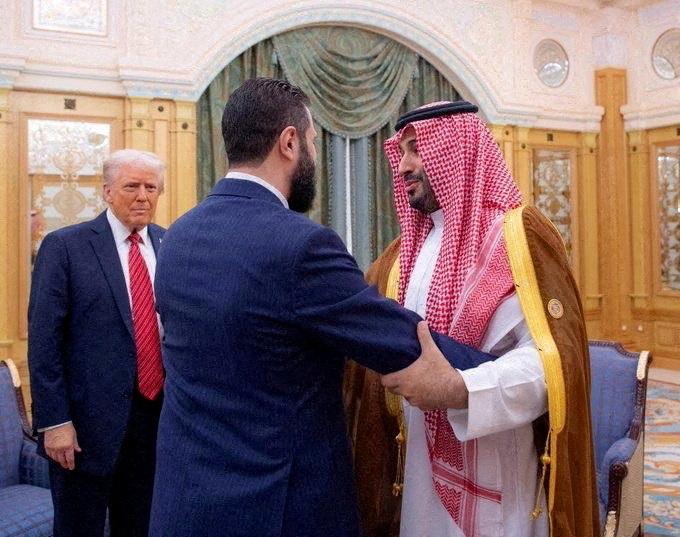US President Donald Trump’s decision to ease sanctions on Syria is a hopeful but calculated gamble. With Americans now allowed to transact with Damascus and invest in the country, the ball is now in its leader Ahmed al-Sharaa’s court. How he repays this show of goodwill will determine how the US proceeds.
I worked for President Trump for more than two decades, and perhaps I can help explain how he sees this. Trump now shares the growing consensus among Arab leaders: healthy skepticism is fully warranted, but the potential payoff of successful Syrian transformation is enormous — making conditional relief worth a shot. Gulf leaders observe that much hinges on whether al-Sharaa understands that his political survival depends on avoiding errors in judgment that would derail Syria’s moment of opportunity.
Trump’s expectations for Gulf partners reveal that this strategy is anything but haphazard. Saudi Arabia, Qatar, and the UAE aren’t merely sources of funds. They’re being positioned as primary architects of Syria’s economic revival and political stabilization. These regional neighbors have skin in the game if Syria unravels.
Gulf states aim for Syria to not only move past its decades of bloodshed, but become a strategic asset that’s crucial for containing regional Iranian influence. Anchoring Syrian reconstruction around Gulf investment creates mutually beneficial relationships that pull Damascus firmly into the Gulf-Arab minded orbit.
Türkiye also occupies a unique position in this architecture. President Recep Tayyip Erdoğan is invested in Syria’s new leadership and cannot afford to see the country fragment into chaos. Turkish firms are ready to expand into Syria, creating natural incentives for Ankara to ensure Syria’s new government delivers on reform promises.
The broader vision is for a Middle Eastern realignment. From the Abraham Accords to emerging economic partnerships, the region is experiencing unprecedented cooperation against destabilizing actors like Iran.
Trump’s appointment of Thomas Barrack as Ambassador to Türkiye and Special Envoy to Syria is an important sign of how seriously Trump is taking this. I can attest to Barrack’s rare combination of regional expertise and hard-nosed business acumen. He won’t be bamboozled by slick presentations. His due diligence process will ensure any American assistance reaches legitimate recipients while building transparent institutions Syria desperately needs. He is also a trusted friend of President Trump, giving him leeway to think creatively about solving the Syrian dilemma.
Barrack will oversee the conditional sanctions relief program and see how al-Sharaa responds to incentives. Syria can’t be used for terrorism or attacks against Israel, it must cooperate on security matters, demonstrate progress on rule of law and building governing institutions. If al-Sharaa fails, penalties return. If he exceeds expectations, more opportunities open up.
Success isn’t guaranteed. If al-Sharaa is just playing for time or manipulating international opinion, Trump will quickly detect that and is prepared to respond accordingly.
The next year is decisive. If Syria’s new government delivers on its commitments, a nation long written off as a failed state could become a regional success story. The vision is compelling: visitors from around the world paying tribute to the cradle of civilization, enjoying Syria’s majestic nature and history in safety and security. It’s not impossible. It will take careful diplomacy, strong leadership — including from Gulf Arab partners and allies — and the courage to engage with complicated actors.
Perhaps Syria may even move from being the last country anyone would expect to enter into the Abraham Accords, to being among the next group.
Jason D. Greenblatt was President Donald Trump’s Middle East envoy between 2017 and 2019. He is the author of In the Path of Abraham and the founder of Abraham Venture LLC. Follow him on X: @GreenblattJD


